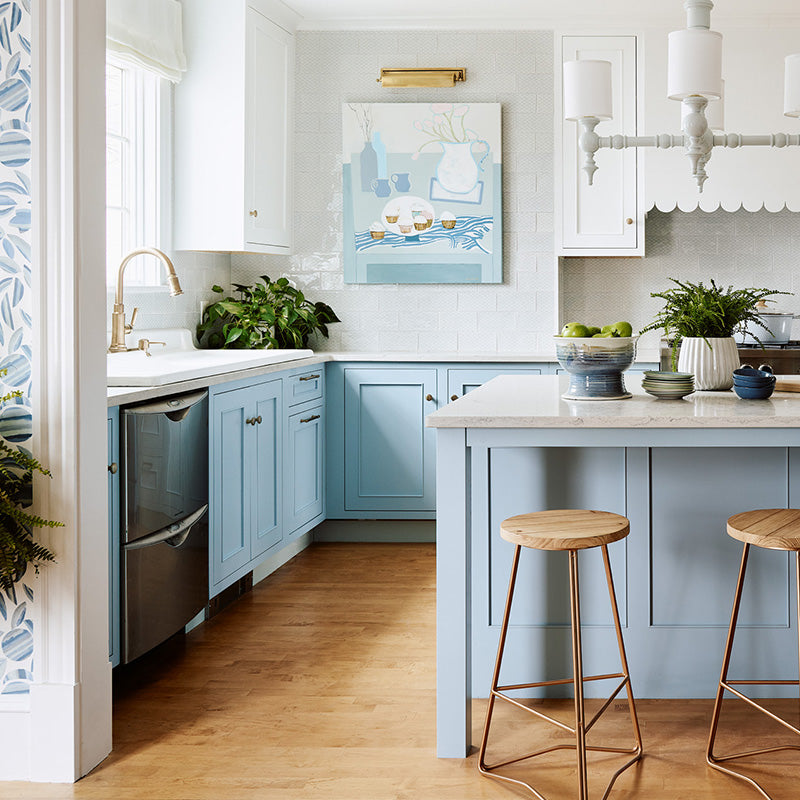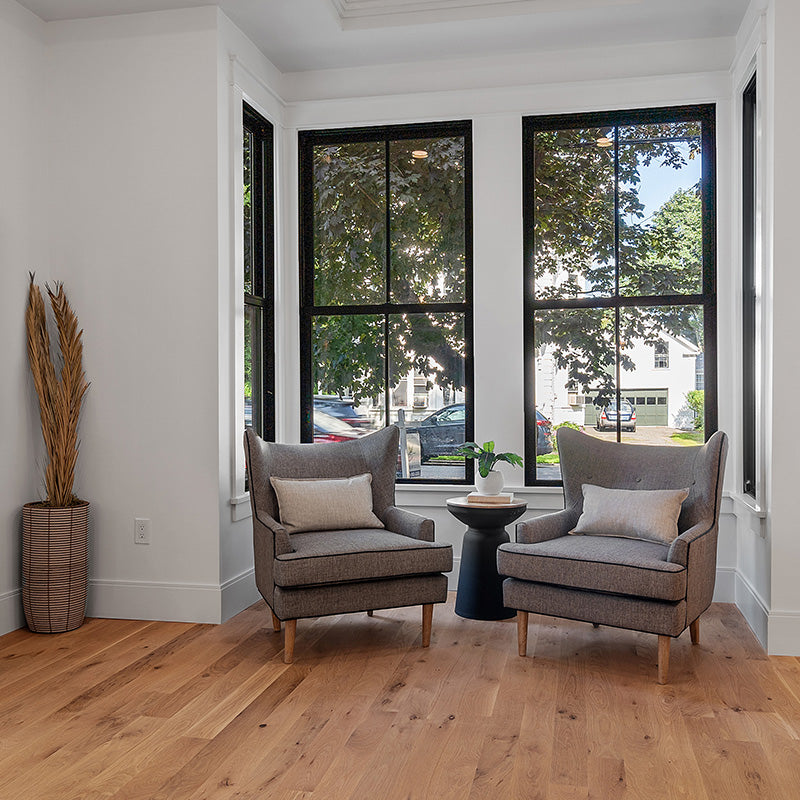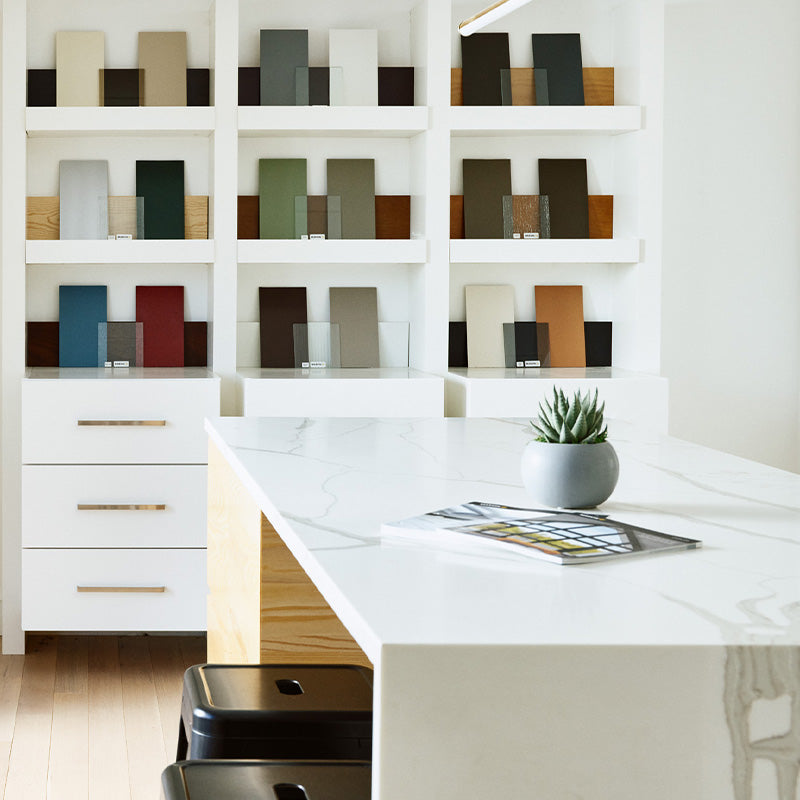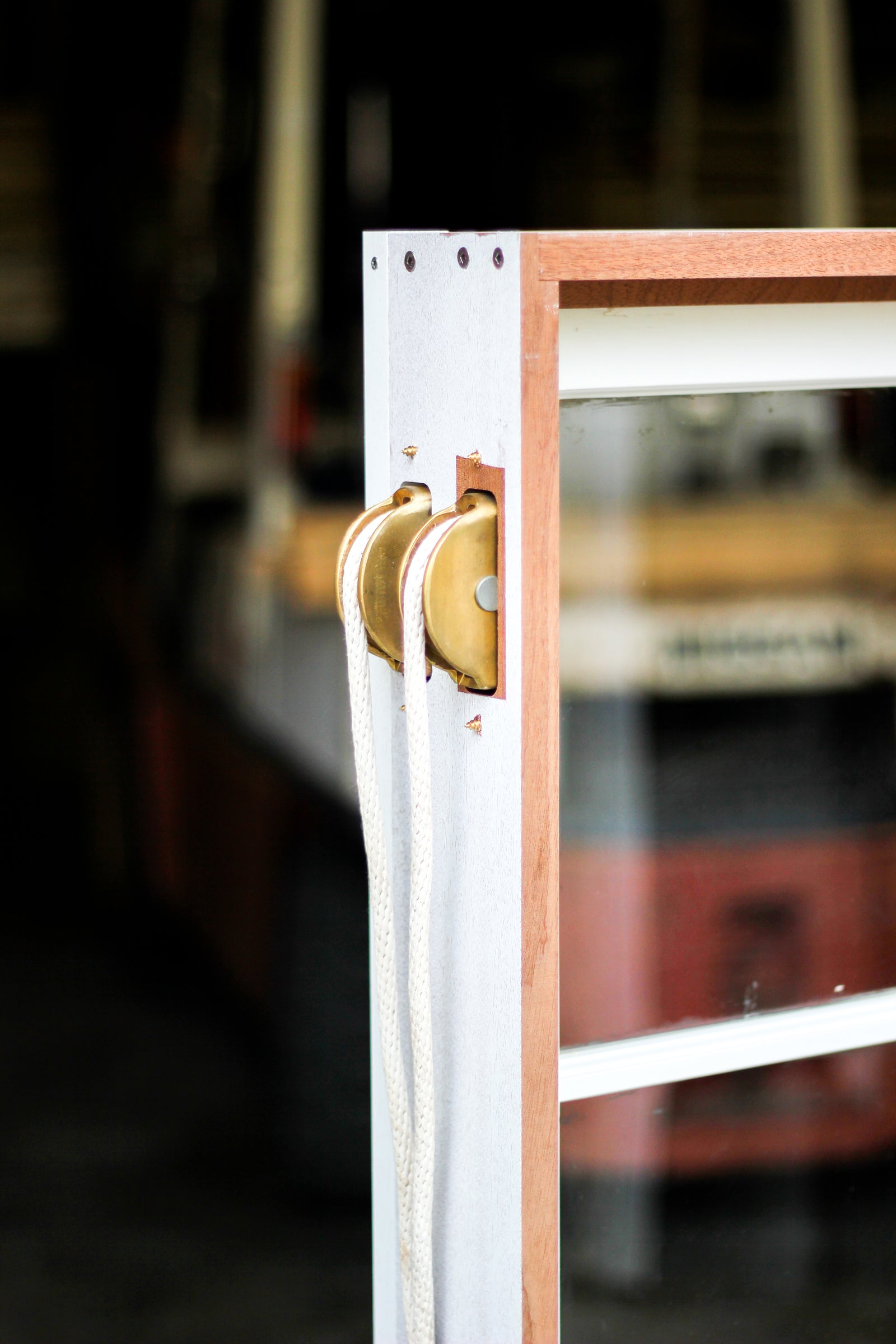Products
Projects
Resources

Soapstone Countertops
September 29, 2015

If your countertops are destined to take a beating, soapstone could be the answer you are looking for. It has long been the choice of high school chemistry labs. The inert chemical nature of soapstone means it’s not harmed by lemon juice (think no etching) and can hold up to the heat. Don’t worry about putting hot pots and pans on the counter. It requires little maintenance and is softer than other natural stones so it’s a tad more forgiving on your dishes.
What is soapstone?
A natural, quarried stone, Soapstone is a metamorphic rock which takes it’s name from the soft, soapy feel. It is comprised mostly of talc, which makes it a soft stone, and often has pronounced veins of quartz. There are two grades of soapstone; artistic and architectural. Artistic-grade soapstone has a higher talc content, making the stone softer and ideal for carving sculptures. Architectural-grade soapstone has a lower talc content which makes it harder, so it better serves as counters and workstations. Durable, adaptable and impervious to bacteria, soapstone can found throughout a house. It can be used as sinks, fireplace surrounds, flooring, throughout the bathroom and even outdoors.
Do soapstone counters need to be sealed?
Soapstone is nonporous and therefore does not need to be sealed. However, some choose to coat their counters with mineral oil to add extra protection and help darken the stone. It has a growing patina as it darkens over time. Nicks and scratches can either grow with the counter or be removed with sandpaper, chefs choice.
What colors does it come in?
Each slab differs slightly from slab to slab and quarry to quarry. Soapstone in generally available on a sliding gray scale, with green and blue undertones. The quartz flecking and veining varies widely from slab to slab, and you can chose which is right for you. Soapstone darkens naturally over time. Adding mineral oil to architectural-grade soapstone can help you achieve a dark-charcoal black coloring, this process can also highlight the veining. By coating the stone in mineral oil, letting it soak in and then wiping off the excess you can speed up the darkening process. This may take several coats for the stone to become completely saturated.

Cleaning & Maintenance
Since it is nonporous and bacteria resistant, low maintenance is the name of the game for soapstone. No harsh cleaners are necessary, soap and water work well. Due to its soft nature, nicks and scratches may occur. These can be considered part of the patina but removing these is quite easy with a bit of sandpaper.
|
Pros |
Cons |
|
Nonporous stone means no staining Little to no maintenance Softer feel than other solid stone surfaces Can be used in many different applications from countertops to fireplace surrounds. |
Available in a limited range of colors: varying shades of gray Quarried in smaller slabs, which could mean seams in your counters Develops a patina Easily scratched and nicked |
Subscribe Today!
Our goal is to provide you with as much information as possible. Our newsletter is full of tips, inspiration and featured projects. We promise to only send you interesting things and never share your email with anyone else.








